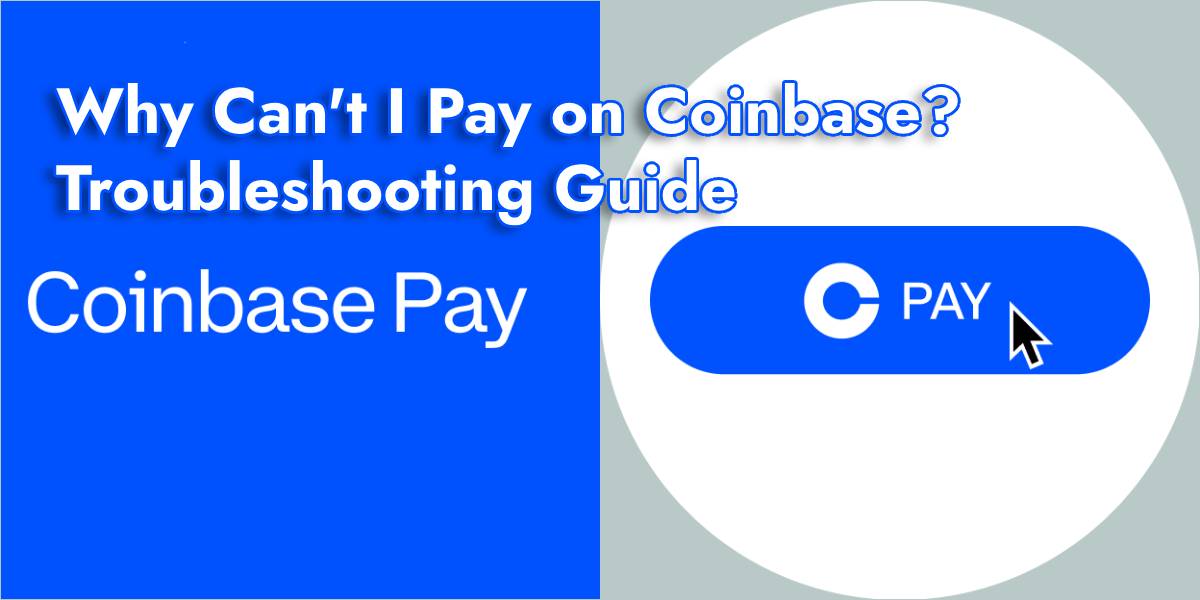Why Can't I Pay on Coinbase? Troubleshooting Guide


Cryptocurrency enthusiasts often grapple with the dilemma of choosing between a hot wallet and a cold wallet. Understanding the distinction between the two is crucial for safeguarding digital assets in the volatile world of cryptocurrency. Let's delve into the intricacies of these wallets, exploring their features, security measures, and the factors that influence the decision-making process.
Also Read: How To Buy Bitcoin Safely (Step by Step Guide)
Different individuals have varied priorities when it comes to cryptocurrency management. Some may prioritize security above all else, while others may value accessibility and user experience. Matching wallet features with individual preferences is crucial for a satisfactory experience.
Cryptocurrency enthusiasts should adopt a long-term perspective when choosing a wallet. As the cryptocurrency landscape evolves, the chosen wallet should have the flexibility to adapt to emerging technologies and changes in the market.
The landscape of cryptocurrency wallets is dynamic, with continuous advancements in technology. Emerging technologies such as quantum-resistant cryptography and decentralized identity solutions are likely to shape the future of wallet development.
The rise of decentralized finance (DeFi) introduces new opportunities and challenges for cryptocurrency wallets. Integration with DeFi platforms and services will likely become a standard feature, expanding the functionalities of both hot and cold wallets.
As the cryptocurrency ecosystem matures, hot and cold wallets will undergo further refinement. Predictions include increased standardization of security measures, improved user interfaces, and the emergence of hybrid wallets that combine the strengths of both hot and cold storage.
In the dynamic realm of cryptocurrency, a hot wallet refers to a digital wallet connected to the internet, facilitating quick and convenient transactions. On the other hand, a cold wallet, also known as a hardware wallet, is an offline storage solution designed to enhance security by isolating the user's private keys from online threats
Before diving into the specifics, it's essential to recognize the significance of comprehending the difference between hot and cold wallets. The choice between the two significantly impacts the security, accessibility, and overall experience of managing cryptocurrency holdings.
Hot wallets provide unparalleled accessibility and user-friendly interfaces. However, their susceptibility to online attacks makes them less secure compared to cold wallets. Balancing convenience with security is a key consideration for users opting for hot wallets.
Various types of cold wallets exist, each with its unique features. Hardware wallets like Ledger Nano S and Trezor offer physical security, while paper wallets involve storing private keys on a physical document.
Cold wallets shine in terms of security, protecting assets from hacking attempts. However, their physical nature may pose challenges in terms of portability and accessibility, requiring users to find a balance based on their needs.
Also Read: 3 Best Cold Wallets of January 2024
Overview of Security Challenges
The cryptocurrency space is rife with security challenges, ranging from phishing attacks to malware targeting vulnerabilities in cryptocurrency infrastructure. Understanding these challenges is crucial for making informed decisions about wallet security.
Cryptocurrency holders face threats such as phishing attempts, where malicious actors try to obtain sensitive information by posing as trustworthy entities. Malware attacks, keyloggers, and ransomware are also prevalent, targeting vulnerabilities in both hot and cold wallets.
The decentralized and irreversible nature of cryptocurrency transactions amplifies the need for robust security measures. Safeguarding digital assets is not just a matter of protecting wealth but also ensuring the integrity and trustworthiness of the entire blockchain ecosystem.
Authentication Methods
Hot wallets employ various authentication methods, including passwords, PINs, and mnemonic phrases. While these measures enhance security, users must remain vigilant against social engineering tactics aimed at extracting this information.
Encryption plays a pivotal role in securing transactions and sensitive data within hot wallets. State-of-the-art encryption protocols ensure that even if unauthorized access occurs, the information remains indecipherable.
Implementing two-factor authentication adds an extra layer of security, requiring users to provide a second verification step beyond passwords. Despite its effectiveness, 2FA is not foolproof, and users should stay vigilant against phishing attacks.
Air-Gapped Technology
Cold wallets, especially hardware wallets, often employ air-gapped technology. This means they operate in an isolated environment without internet connectivity, minimizing the risk of remote hacking attempts.
Some advanced cold wallets integrate biometric authentication features, such as fingerprint recognition. This enhances security by ensuring that only authorized individuals can access and control the cryptocurrency holdings.
Users must scrutinize the features and specifications of cold wallets to assess their security robustness. Regular updates, adherence to industry standards, and third-party audits contribute to establishing the reliability of cold wallet solutions.
Hot wallets excel in terms of user experience and accessibility. The seamless integration with online platforms allows users to manage their cryptocurrency holdings with ease. Quick access to funds and user-friendly interfaces make hot wallets a preferred choice for those prioritizing convenience.
Hot wallets offer instant access to cryptocurrency holdings, facilitating swift transactions. This real-time accessibility is particularly advantageous for active traders and individuals who frequently engage in cryptocurrency transactions.
While hot wallets provide an unparalleled user experience, users must strike a balance between convenience and security. Implementing best practices, such as regular security audits and staying informed about potential threats, is essential to mitigate risks associated with hot wallets.
understanding the nuances between hot and cold wallets empowers cryptocurrency users to make informed choices based on their unique preferences and priorities. Whether prioritizing accessibility or security, selecting the right wallet is a crucial step in navigating the ever-evolving world of cryptocurrency.
Comments
Post a Comment